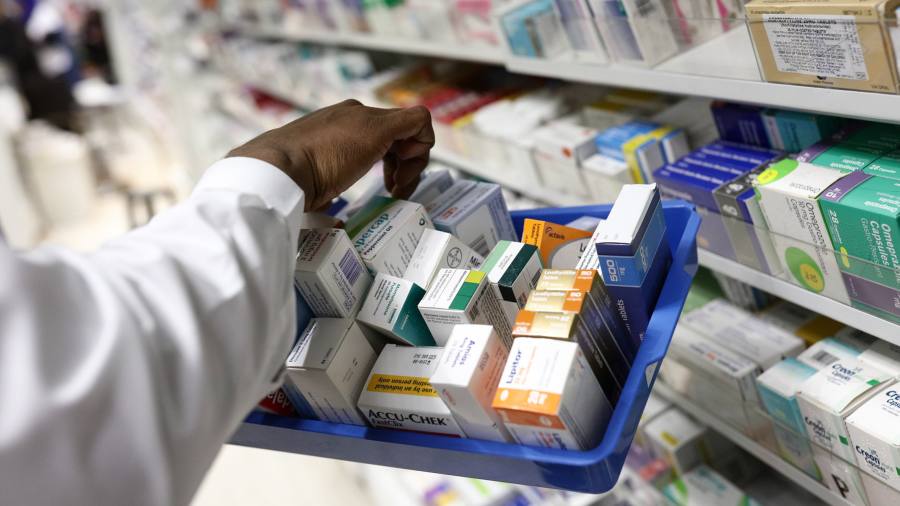
At least two drug companies have privately warned ministers that they will cease or curtail operations in the UK unless they are spared what industry leaders have dubbed a “penalising” levy designed to limit the NHS’s medicines bill.
Letters seen by the Financial Times reveal profound concern about the Voluntary Scheme for Branded Medicines Pricing and Access, which was introduced in 2019. VPAS requires companies to pay 15 per cent of revenues to the Department of Health and Social Care if the health service’s overall bill for medicines rises by more than 2 per cent annually.
The scheme was originally intended to limit the amount the NHS spent on new medicines, whose manufacturers have the power to raise prices because their products are protected from competition by patents.
But it was expanded to include certain off-patent medicines, including biosimilars, or copies of biologic medicines. Drug groups said market competition meant they already delivered heavily discounted prices on biosimilars, leaving them struggling to absorb the extra costs of the VPAS rebate.
The British Generic Manufacturers Association (BGMA), which represents UK drug companies, suggested a drop in the number of groups willing to supply the NHS would hand more pricing power to those still in the market, raising overall health service costs.
In a letter to then business secretary Kwasi Kwarteng and then health secretary Sajid Javid in June this year, Celltrion Healthcare, which is based in South Korea, said that as “a direct consequence of this scheme, it is no longer viable for us to continue to supply the NHS with biosimilar medicines, including our significant pipeline of planned launches”.
Matthew Eddleston, Celltrion’s commercial and operations director, pointed to the trebling of the rebate it paid to the health service in January 2022 from 5.1 per cent in 2021, and said 2023’s rate was set to reach 23.7 per cent.
The increase had “made it unviable for Celltrion to continue to supply medicines to the NHS”, he wrote. He added that “the VPAS percentage will cause the closure of our UK operation, with the loss of high-value jobs and reduced supply resilience for the NHS”. The company told the Financial Times it had expected to expand its UK workforce in the coming years from about 30 to 50.
In another letter, a second company, which did not wish to be named, told the government this month that it would significantly cut its UK allocation of the biosimilars it sells to the NHS and allocate more stock to higher-margin markets where VPAS does not apply.
Mark Samuels, BGMA chief, said the two companies’ concerns echoed wider industry sentiment and suggested the “penalising rebate” had been a factor in the nationwide shortages of HRT medicines this year, as manufacturers directed their product elsewhere.
Samuels also pointed to a study by the Office of Health Economics, a research consultancy, which found VPAS “could actually reduce generic and biosimilar competition to such an extent that prices rise for the NHS”.
Alistair McGuire, professor of health economics at the London School of Economics, who contributed to the research, said the study predicted the levy could over the next five years “cost the NHS billions of pounds, far outweighing any income [it] brings in”. The study projected an additional cost to the NHS of between £3bn and £7.8bn from 2024 to 2028.
The Department of Health and Social Care said there was “no evidence that the NHS will face increased costs as a result of higher Voluntary Scheme for Branded Medicines Pricing and Access (VPAS) payment percentages”.
“The VPAS has driven significant improvements in patients accessing clinically and cost-effective medicines, whilst ensuring predictable spend growth for the NHS and industry.”